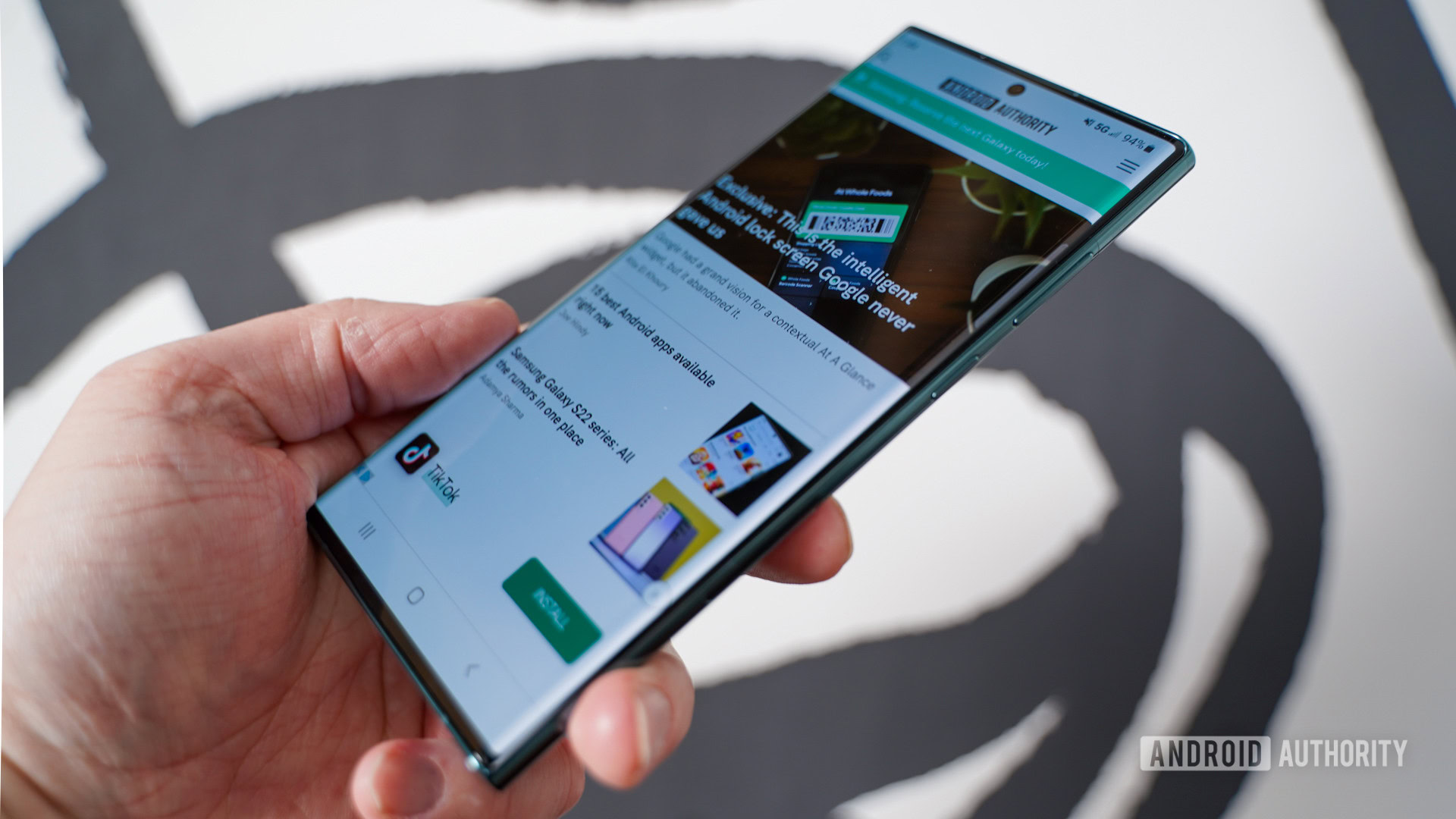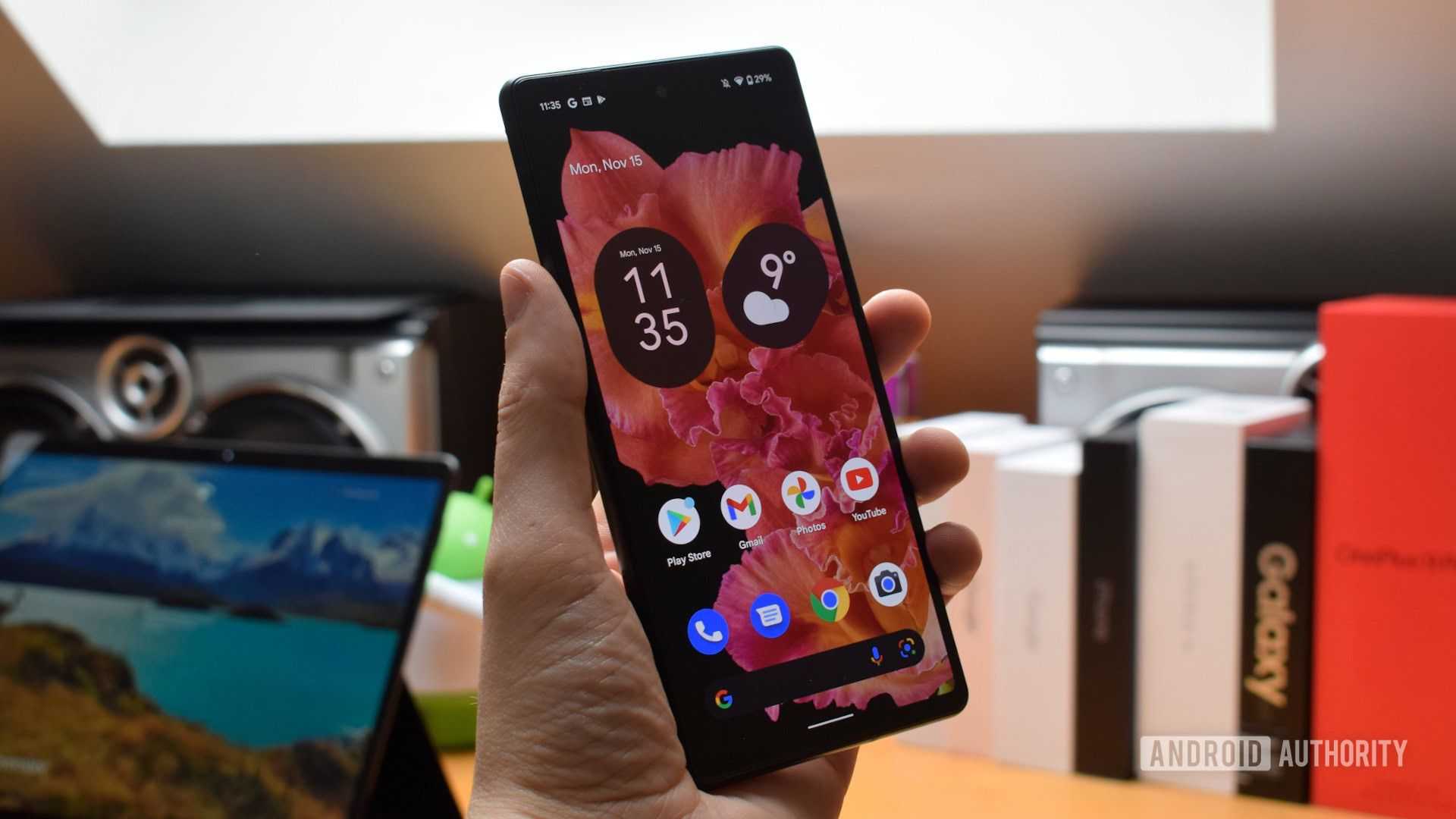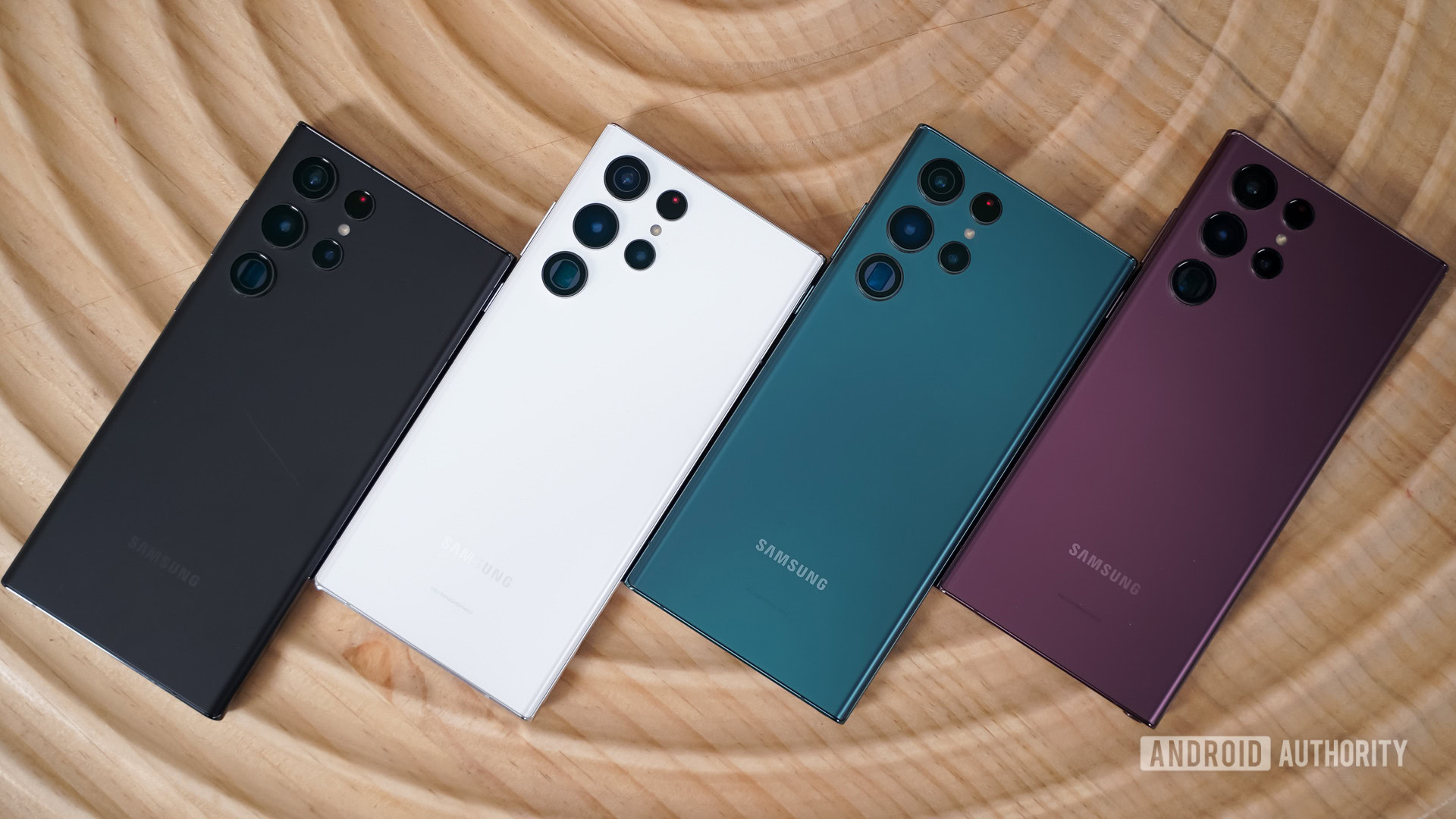Affiliate links on Android Authority may earn us a commission. Learn more.
Samsung Galaxy S22 Ultra performance test: Snapdragon 8 Gen 1 benchmarked

The Samsung Galaxy S22 series is finally official, and it’s the first significant phone series to launch widely with the Snapdragon 8 Gen 1 processor. Qualcomm’s new chipset is its first SoC to use Arm’s v9 CPU cores as well as an Adreno GPU that promises a notable boost in graphical performance.
It’s one thing to promise significant gains, but another matter entirely to deliver these results. We’ve put the Snapdragon-powered Galaxy S22 Ultra through several preliminary tests, and here’s what we found out.
Editor’s note: We’ll be conducting additional tests in the coming weeks. We’ll also be testing the Exynos 2200 version of the Galaxy S22 series as soon as we get it. So check back for those results.
Benchmark Results
Snapdragon 8 Gen 1 versus Snapdragon 888
The Snapdragon 8 Gen 1 inside the Galaxy S22 Ultra delivers an 11% improvement in single-core performance in the GeekBench 5 benchmark. Meanwhile, the multi-core leg of GeekBench 5 produces a score that’s virtually unchanged over the Snapdragon 888 and actually slightly worse than last year’s Exynos 2100. We also tested the Galaxy S22 Plus and achieved the same results.
By comparison, Qualcomm claimed a 20% performance improvement over the Snapdragon 888 at the new chipset’s launch. So it’s clear that the real-world implementation falls short of the chipmaker’s own claims, at least as far as Samsung’s implementation is concerned. These results also fall short of Arm’s claims of an up to 30% improvement, although this took other factors like a larger cache into account.
Single-core sees an uplift, but multi-core CPU capabilities are virtually unchanged versus the Galaxy S21.
Are you upgrading from a Galaxy S20 series phone or another device powered by the Snapdragon 865? Then you can expect single-core CPU gains of 43% and multi-core gains of 13.2%. Of course, the Snapdragon 865 lacked the Cortex-X series Prime core, using a clock-boosted Cortex-A77 as the most powerful core instead. So it’s understandable that we’d see a major single-core gain here.
More reading: Everything you need to know about Arm’s new CPU designs
Graphical performance is a massive area of improvement for the Snapdragon 8 Gen 1 though — the S22 Ultra saw a huge 75% improvement over the S21 Ultra’s Snapdragon 888 in the 3DMark Wild Life test. Qualcomm originally claimed gains of up to 30% for its GPU and up to 60% when using the Vulkan API, which clearly shows here. We’ll have to dive into deeper testing to see if this performance is sustainable over a long gaming session.
Needless to say, the Galaxy S22 Ultra blitzes Snapdragon 865 phones in this test, delivering a performance boost of 156%.
Finally, Antutu is a system-level benchmark test that focuses on the CPU, GPU, memory, and more, and we ran it on the Galaxy S22 Ultra as well. Testing shows that the 2022 flagship was ~18% faster than the Snapdragon 888 and almost 42% faster than the Snapdragon 865. Again though, the scores for the Galaxy S22 Ultra are a little lower than anticipated.
Snapdragon 8 Gen 1 versus Apple A15 and Google Tensor

How does the new Qualcomm chipset fare against major rivals in Apple and Google? Well, GeekBench 5 shows that Apple still holds the CPU performance crown. The iPhone 13 family’s A15 chipset was ~30% faster in both the single- and multi-core legs of the benchmark.
The Snapdragon 888 was already marginally faster than the Google Tensor in CPU-related benchmarks when we tested the Pixel 6 series last year. So there’s no surprise to hear that the Snapdragon 8 Gen 1 defeated Google’s chipset in single-core and multi-core tests by 17% and 20%, respectively.
Qualcomm's latest Adreno graphics compare favorably with Apple's gaming capabilities.
The Snapdragon 8 Gen 1 might still lag behind Apple when it comes to CPU-related benchmarks, but it just beats Apple’s A15 in the 3DMark Wild Life test. The Qualcomm chipset is the new number one here, edging out the A15 by almost 3% and delivering a 47% improvement over the Google Tensor.
Switching to the Antutu test, the Snapdragon 8 Gen 1 in the Galaxy S22 Ultra beats the Google chipset by almost 42%.
Snapdragon 8 Gen 1 versus the competition: The verdict

Benchmarks are just one way to test performance, and real-world performance could tell a different story. But the CPU-related results show that the Snapdragon 8 Gen 1 inside the Galaxy S22 Ultra still lags behind the Apple A15 Bionic and falls short of Qualcomm’s performance target when compared to the Snapdragon 888. So CPU-dependent tasks such as app loading and high-resolution image capture might not see a major real-world boost.
Given existing reference design benchmarks and our own experience with another handset we currently have under embargo, Samsung’s multi-core CPU result isn’t typical of the Snapdragon 8 Gen 1. Instead, it’s possible that Samsung’s task scheduling, clock gating, or another factor like software is to blame for these lower than expected CPU-related results for the Galaxy S22 Ultra and Plus we’ve tested. We’ll keep an eye on updates to see if anything improves once devices ship.
On the other hand, Qualcomm may have underplayed just how good the chipset’s GPU is, as it just about beats the A15 Bionic and easily beats the Google Tensor in the GPU-related benchmark. This bodes well for mobile gamers, especially when it comes to high refresh rate titles and graphically advanced games like Genshin Impact.
See also: Snapdragon 8 Gen 1 vs Exynos 2200 vs Dimensity 9000 specs
There is one major unknown, though, and that’s just how well the Exynos 2200 fares against the Snapdragon 8 Gen 1. We’ll be testing this variant as soon as we get our hands on it, but the two chipsets offer almost identical CPU setups, leaving the GPU as the major battleground. We have been expecting great things from the Exynos chipset, given that it uses an AMD GPU for the first time, but Qualcomm has clearly set the bar high.